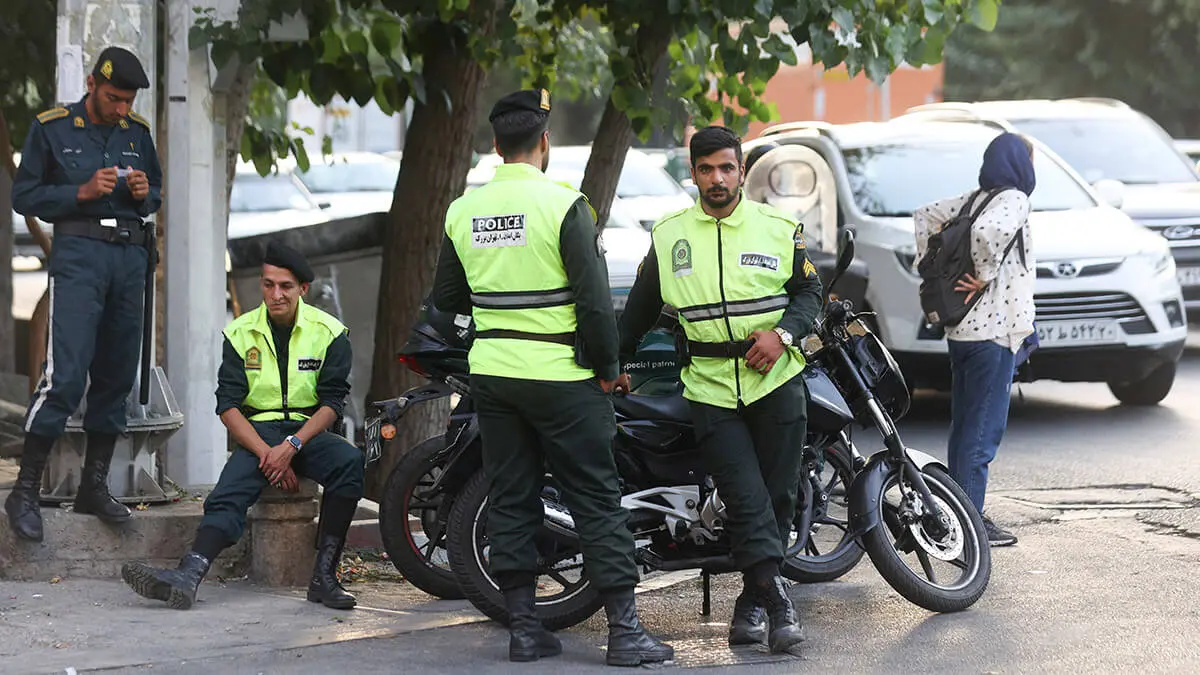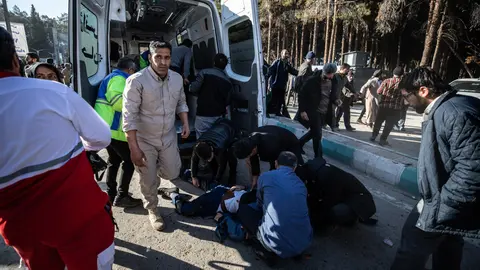Daesh revendique l'attentat qui a fait 84 morts en Iran

Daesh a revendiqué l'attentat de mercredi dans le sud de l'Iran qui a fait 84 morts, selon le dernier bilan revu à la baisse par les autorités iraniennes.
L'organisation djihadiste a affirmé sur ses chaînes Telegram que deux de ses membres ont "actionné leur ceinture d'explosifs" au milieu d'une "grande foule d'apostats près de la tombe de leur chef Qasem Soleimani hier à Kerman dans le sud de l'Iran".
The state-run IRNA news agency, based on "an informed source", had already indicated that the first explosion was caused by a suicide bomber, whose body was found blown to smithereens.
The second explosion is under investigation, but was also probably caused by a suicide bomber, according to IRNA.
After saying there were 95 dead and 181 wounded, Tehran downgraded the death toll.
"According to the latest statistics, 84 people were killed," the head of the country's emergency services, Jafar Miadfar, announced on state television.
The attack left "284 wounded", of whom "195 are still hospitalised", Miadfar added.
The bombing - two explosions 15 minutes apart - took place near the Saheb al-Zaman mosque in Kerman in the south, where the tomb of General Qasem Soleimani, who was responsible for Iranian military operations in the Middle East and was killed by the US in Iraq on 3 January 2020, is located.
The bombs exploded as a crowd commemorated the fourth anniversary of his death.
BREAKING: ISIS claims responsibility for Kerman attack, saying it was carried out by two suicide bombers. pic.twitter.com/a0cONxTeYA
— Gregory Brew (@gbrew24) January 4, 2024
Interior Minister Ahmad Vahidi warned, however, that the toll could still rise as some of the wounded are in a "critical condition".
The attack came amid tensions in the Middle East and a day after the number two of the Palestinian Islamist movement Hamas, Saleh Al Aruri, an ally of Iran, was killed in an attack in Beirut, which the Lebanese authorities attributed to Israel.
Tehran declared a "day of national mourning" on Thursday after the bloodiest attack in the country since 1978, when a criminal arson attack killed at least 377 people at a cinema in Abadan (southwest), according to AFP archives.
Iran's supreme leader, Ayatollah Ali Khamenei, vowed a "harsh response" and other Iranian leaders blamed Israel and the US.
Iran's arch-enemy, the Jewish state, has not commented on the attack, saying it is "focused on the fighting" in Gaza.









